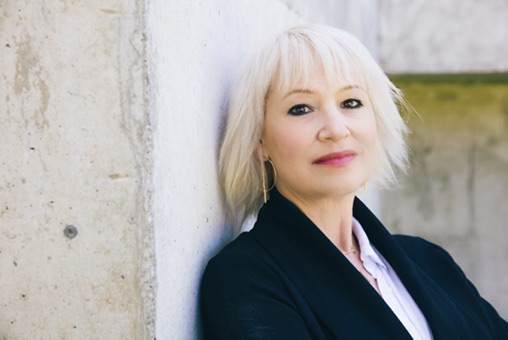OPA Assessment Spotlight

Dr. Dora Epstein Jones
OPA Spotlight Interview
By: Libby Spradlin, Associate Director
What is your position and what do you do for Texas Tech?
I am the Department Chairperson of Architecture for the College of Architecture at Texas Tech. I am responsible for the curriculum of the undergraduate and graduate programs in the College, overseeing faculty teaching, course content and student learning at all levels. It's a beautiful job because it's so holistic. I see everything from admissions to graduation, from hiring to emeritus, the entire educational experience.
How long have you been at Texas Tech?
I've only been here for six months! Best six months ever though!
How did you get involved with assessment?
Fifteen years ago, I was administrating at a small independent architecture school in Los Angeles that was experiencing some growing pains with accreditation. I took on the work with my dear colleague, Ming Fung, and together, we forged a clear plan for evaluation and assessment, reflection and implementation. It was life-changing for that school. Decision-making began to be more responsible and considered. We could engage in long-range curriculum planning and strategic planning for hiring and recruitment. I later participated in assessment and accreditation training with WASC, and then joined in assessment and accreditation activities with NAAB. Over the subsequent fifteen years, while I was still there administrating, the school skyrocketed from being an artsy little school on the West Coast to an internationally-recognized top architecture school. I can't help but feel that those gains were made in part due to the clarity and perspective that assessment provides.
How do you use assessment in your job? What are some interesting assessment techniques you have used or are planning to use?
I am charged with planning curriculum as well as hiring faculty. Assessment is how I make the decisions that I make on a daily basis, and how I work with faculty to really examine their course content in relation to the rest of the curriculum. One activity that I do is conduct a Faculty Retreat at the end of every semester so that we can all look at the courses in sequence and across each semester. Every person presents their course in the order it comes in the curriculum. This way, we can see if we are rushing some student learning outcomes, or skipping some order, or even repeating unnecessarily. We can see what others are teaching, and how student learning is shaped in their classrooms and studios. Sometimes, we work backwards, ask ourselves, what kind of student do we wish to graduate? That kind of question allows us to shape curriculum planning and to really target certain student learning outcomes.
Another favorite technique I have used in the past is to ask students to keep a running “portfolio” of their studio and coursework. The portfolio can then be evaluated at certain gateways, between the second and third year, or before the graduate program in our 6-year M.Arch. program. The portfolio allows us to see if students are absorbing not just the skills but the critical thinking necessary to be successful in Architecture as a career and as a discipline. By the time a student matriculates into their graduate studies, the portfolios become much more individualized. You can see their own particular voice emerging. It's so exciting to share in that maturity, and to use the portfolio as a benchmark tool for the student and as a teacher. I plan to implement a “portfolio culture” soon here at Texas Tech. I like to make an event of portfolio evaluations, so do expect a day of cookies and balloons at the College of Architecture!
Is there anything else you would like to share about assessment?
My friends call me an “assessment nerd” because the topic is so exciting to me. Honestly, I do not see how education leaders can make sound decisions about curriculum, teaching and content without conducting assessment and reflecting seriously on the results of assessment data. Assessment sounds scary to some folks - it sounds like reducing ideas to numbers or that assessment can't capture the ineffable qualities of good education. But the truth is that assessment is not only quantitative, and it's the only way to gather enough information to be able to plan into the future. To make an analogy, I want my doctor to assess my total health, to take my blood pressure or my weight, and to look at that data and its trends even when she sees me for the sniffles. We call that “quality care.” I think we owe our students, faculty and university the same level of quality care in making recommendations for the future.
What is your hometown or where do you tell people you are from?
I'm from rural Oregon, really not much different from outside of Lubbock, except it does rain a lot more. I went to school in California and stayed for a good twenty years. Lubbock is my home now, and the Red Raiders are my team!
What do you like to do when you are not working?
I really like working when I'm not working. I'm writing a fictional work right now. I like making bad art. I like cooking and cleaning. I really like listening to music on vinyl. Mostly though, I'm a mom to an absolutely beautiful thirteen-year-old son. He has Type 1 diabetes, and so, I also like to spread awareness about this disease because it affects so many children and for the rest of their lives. Please go to beyondtype1.org for more information!
What is something you have not done but would like to do?
I'm ready to explore my new state of Texas. Road trip, anyone?
Office of Planning and Assessment
-
Address
Administration Building, Suite 237, Box 45070 Lubbock, TX 79409-5070 -
Phone
806.742.1505 -
Email
opa@ttu.edu
